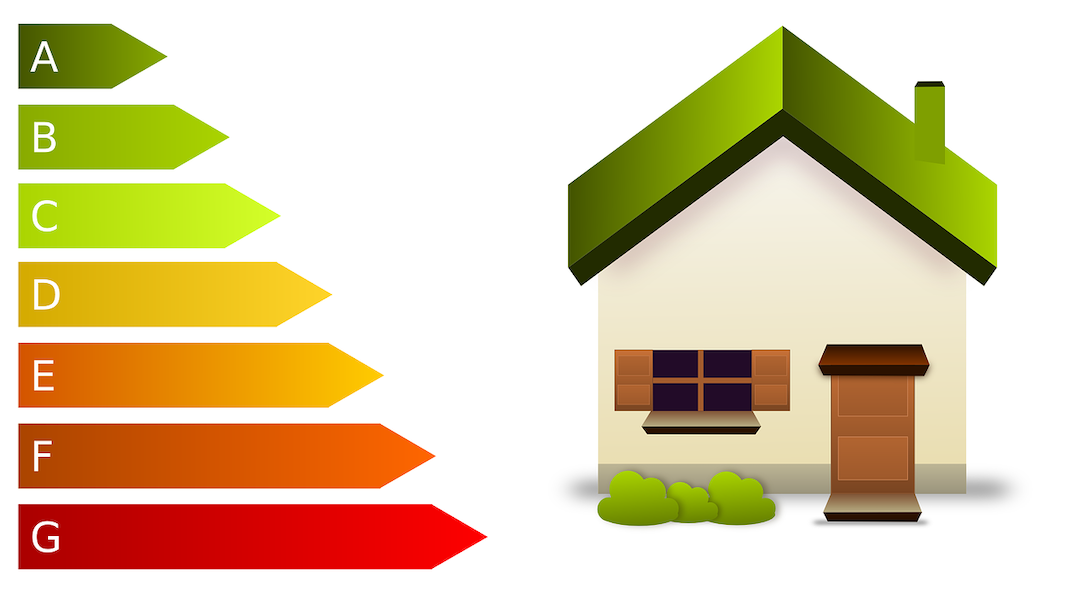Recent findings from the Better Buildings Partnership raise serious questions about the efficacy of energy efficiency ratings used in the United Kingdom.
The study found that buildings that have received the highest rating—an A Energy Performance Certificate—use more energy than some of their peers rated C, D, E, or F. The analysis of self-reported energy data in 2020 for more than 1,100 commercial properties found that the median energy intensity for all B-rated buildings is higher than for C-rated buildings.
The disparity between how buildings are designed and their actual greenhouse gas emissions is widespread in the U.K. The findings are in line with past evidence that green building certifications based on predicted energy use don’t necessarily translate to energy savings in the field.
Some studies have found that LEED certification yields better energy efficiency, but others have found that certified buildings use more energy than non-certified buildings. The U.S. Green Building Council maintains that its own research shows certified buildings are overall more efficient.
Part of the explanation for the disparity between ratings systems and real-world results could be due to the limitation of assessments that only predict potential energy efficiency. In practice, building management systems may not be set up or used properly. In addition, people sometimes undo the efficiency design by bringing fans into buildings or installing additional air conditioners.
Related Stories
| Jul 17, 2013
EPA continues work on new federal stormwater regulations that are expected to impact development
The Environmental Protection Agency continues to develop new stormwater regulations that are expected to force project developers to write stormwater considerations into designs.
| Jul 11, 2013
DOE releases stricter energy efficiency standards for new federal buildings taking effect in 2014
The Energy Department released stricter energy efficiency standards this month for new federal buildings.
| Jul 11, 2013
Pennsylvania legislators work on bill to update demolition codes following fatal building collapse
Pennsylvania lawmakers are working on a bill to update demolition codes, in the wake of a fatal building collapse in Philadelphia in June.
| Jul 11, 2013
Lawsuit challenges modular apartment project in New York City
A plan to build pre-fab apartment buildings at Atlantic Yards in Brooklyn, N.Y., has been challenged by a lawsuit filed by the Plumbing Foundation in Manhattan Supreme Court.
| Jul 5, 2013
OSHA to launch program to protect workers from isocyanate exposure
The Occupational Safety and Health Administration (OSHA) has announced a new national emphasis program (NEP) to protect workers from serious health effects caused by occupational exposure to isocyanates.
| Jul 5, 2013
New California building code expected to boost energy demand response technology
The California master building code, set to go into effect on Jan. 1, 2014, includes a few changes that could push automated, open-standards-based demand response into the mass market.
| Jul 5, 2013
USGBC adds several new LEED pilot credits
The U.S. Green Building Council has added several new LEED pilot credits to the LEED Pilot Credit Libraryin the past few months.
| Jul 5, 2013
Spray Foam Coalition supports new professional certification program for applicators
The Spray Foam Coalition (SFC) of the American Chemistry Council announced its support of the Spray Polyurethane Foam Alliance’s (SPFA) new Professional Certification Program for spray foam applicators.
| Jul 5, 2013
Some industry insiders see design-build as easier path to LEED certification
The design-build construction delivery method may have advantages during a LEED certification process.
| Jun 27, 2013
Lease-accounting legislation could hurt construction industry
Regulatory bodies have proposed changes in how leased equipment is treated on a corporate balance sheet.
















